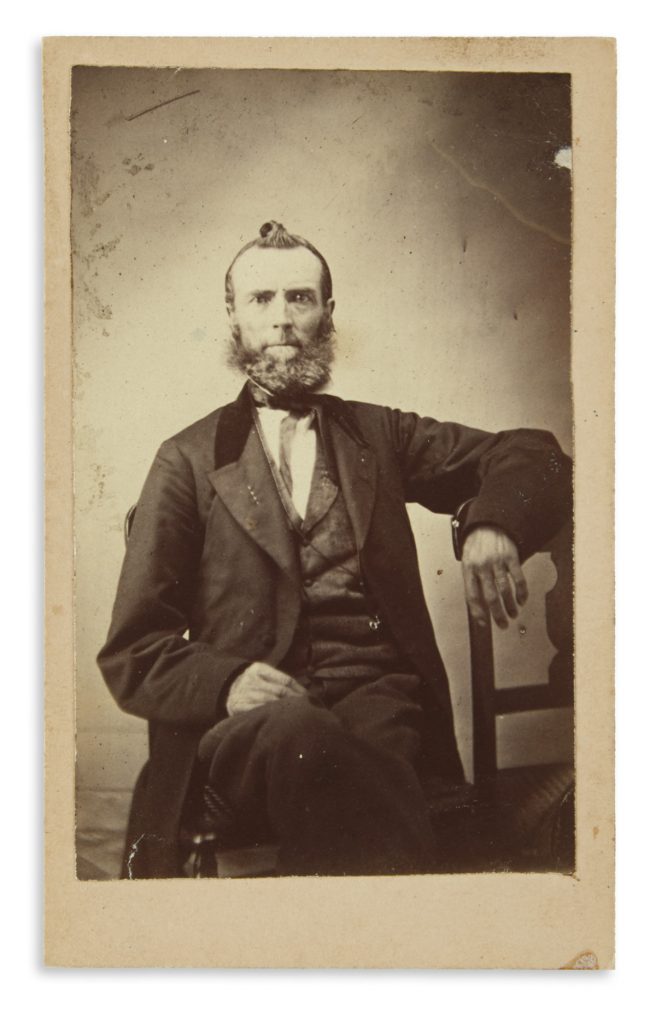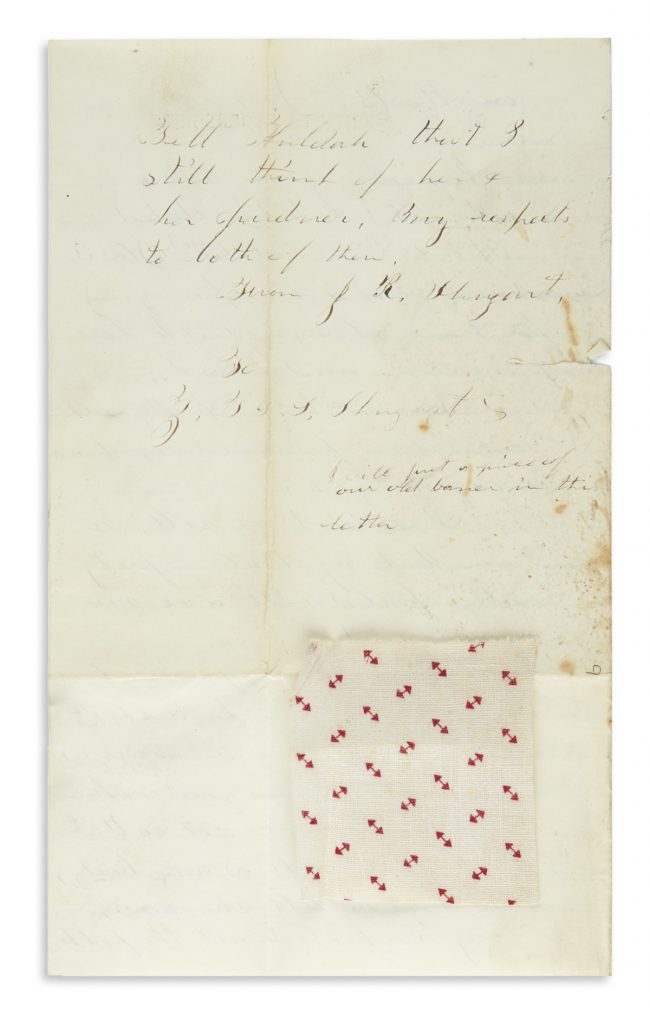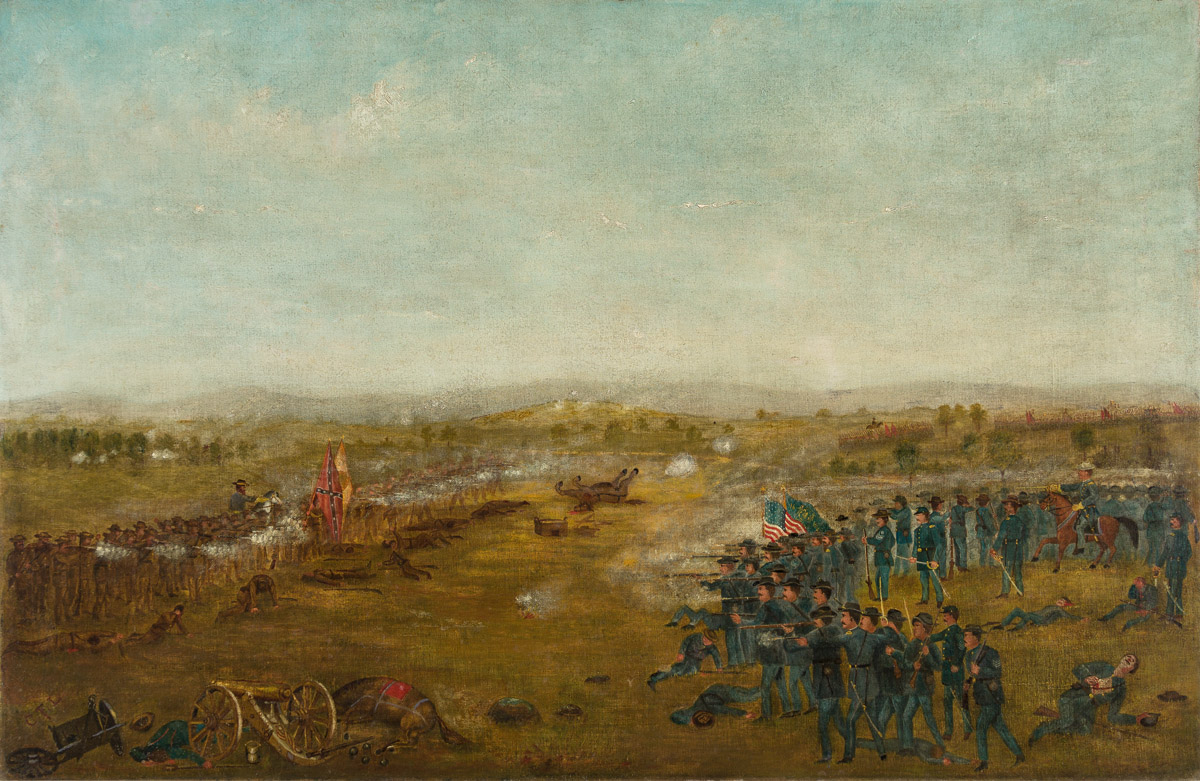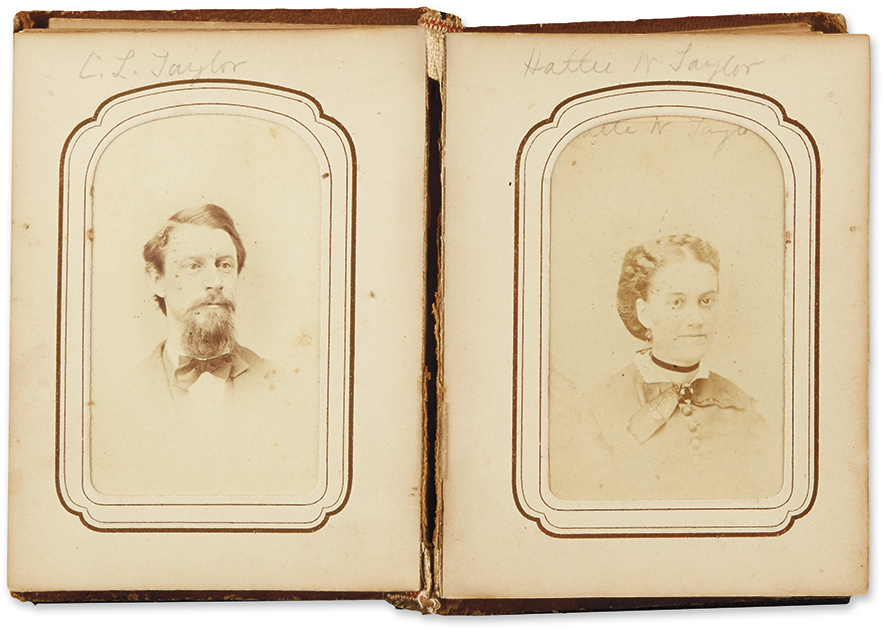Documenting the Underground Railroad: The Story Behind the Shugart Family Papers
An extensive and detailed record of the Underground Railroad came across the block in our September 26 auction of Printed & Manuscript Americana. The key figure that surfaces from the group of documents is Zachariah Taylor Shugart, a Quaker who was born in North Carolina and later settled in Michigan and Iowa. Cited in several local histories, Shugart was a known participant in the Underground Railroad, active from circa 1840 to 1851.
Below our Books Department Director Rick Stattler discusses the gravity of the historic archive.
An Account Book for the Underground Railroad
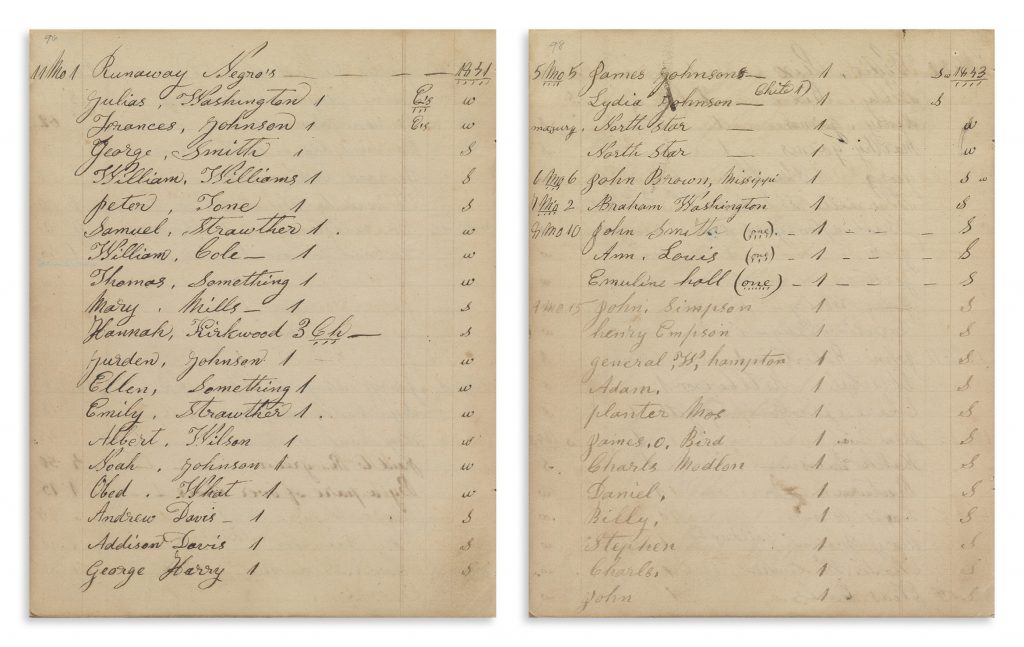
The central item in this lot is an account book kept by Shugart from 1838 to 1852 that details his involvement in the Underground Railroad. Dated in the Quaker style, it begins while Shugart was still in Indiana, but the majority of the entries date from his time in Michigan.
A section of the account book is titled “Runaway Negroes,” and runs from 1841 to 1843, and then undated, with a total of 107 entries. Many of the early entries give complete names, tending toward increasing anonymity as the list went on, ranging from “Samuel Strawther” to “Ellen Something” to “Daniel” to “Something.” Among the more evocative names given are “North Star” and “General W. Hampton.” Several entries include families, such as “Nelly Rix, 2 ch” or “Patience, 5 children.” Each entry is marked either “s” or “w”—potentially these denoations may have marked the next destination on the route.
Taken as a whole, we don’t know of any other Underground Railroad documents at auction that have approached the extent or detail of Zachariah Shugart’s account book.

Numerous other entries suggest connections to Shugart’s Railroad activities. Stephen Bogue was Shugart’s main local collaborator in Cass County, Michigan, and he appears in the log with accounts dated 1844 and 1848.
Census data from 1850 shows that a man named John Watkins lived with the Shugart family, described as a mulatto shoemaker aged 24 and born in Virginia. Watkins paid his board from 1850 to 1852 by making and repairing shoes for local townspeople. This is likely the same J.D. Watkins whose account fills several pages of the log. A note reads “Moved J.D. Watkins shop, 7th mo 1st 1851.”
A long listing of legal expenses in which Shugart attended court, obtained subpoenas for witnesses, and paid lawyers dates from November 1850 to June 1851. These expenses likely relate to his prosecution by Kentucky slaveholders for his central role in thwarting the 1847 Kentucky raid, in which he had actively resisted a group of kidnappers and helped dozens of escaped slaves on their way to Canada. Josiah Osborn, another key figure who helped thwart the Kentucky Raid, is mentioned.
Letters from the Civil War
An illuminating piece of the story comes from a group of seven letters to Zachariah Shugart from his son Joseph R. Shugart, then serving as a Union soldier in the 28th Iowa Infantry during the Civil War. Most notable is a May 27, 1863 letter that describes the Battle of Champion’s Hill, where he was wounded. The rebels “turned on us with about 5 to our one & were about to outflank us & surround us, so we had to retreat in hast. . . . The 28th Iowa & 46 Indiana broke & run as if the devil was after them. We retreated across an open field about 50 or 60 rodds. As I was on retreat I got shot with a rifle ball through the lower part of the mussle of my arm. . . . That battle is called the Battle of Champion Hills & it is said to be the hardest battle ever fought in America for the time it lasted.”
His last letter, dated October 17, 1864, complains of the 43rd Battalion of Virginia Cavalry, better known as Mosby’s Raiders: “Colonel Mosbey has a band of gorillas of about 500, they are all mounted on good horses. They will make a dash upon our train and burn & capture as much as they can & if they catch any of our men, they will rob them of all they have & strip them & sometimes kill them.” Enclosed with the letter is a swatch of fabric, described as “a piece of our old banner.” Joseph R. Shugart would be killed just two days later at the Battle of Cedar Creek. The original newspaper clipping listing him among the dead is also included in the archive.
Recollections & Photographs
A pocket diary was kept by Zachariah Shugart from January to September 1867, while running a drug store in Belle Plaine, Iowa, near Cedar Rapids. On January 7, he noted, vividly that he saw “about 4 hundred soldiers on the cars bound for the Indian country.”
A ten-page bound travel narrative from September to October 1880 documents a trip from Belle Plaine to attend Quaker meetings. Shugart notes with some bemusement “Preaching. Praying. Talking & much singing. Not much like the Quakers in Fox’s day!” A large collection of photographs includes 88 images, many bearing backmarks from Iowa photographers. Formats range from cartes-de-visite to cabinet cards to tintypes to one cased daguerreotype. One unmarked photograph can be identified as Zachariah Shugart, whose distinctive hairstyle and beard as seen in other photographs would never again be replicated until early twenty-first-century Brooklyn (pictured above).
